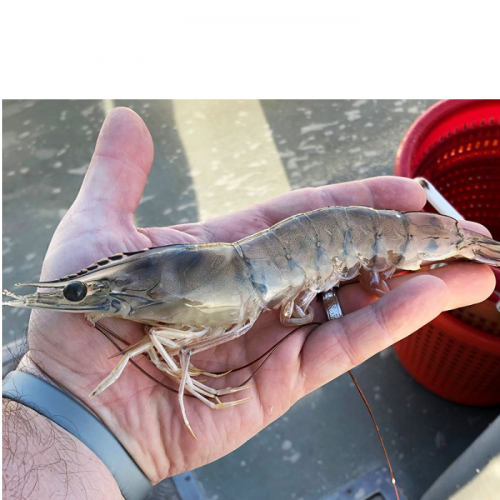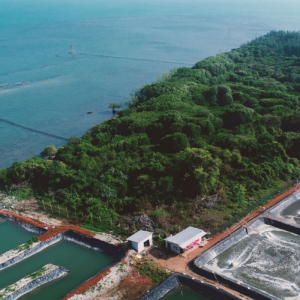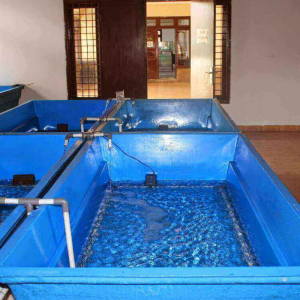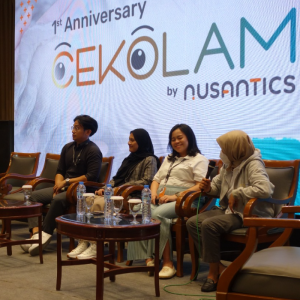
Is The Frequency of Carbohydrate Supplement Important?
| Wed, 27 Jan 2021 - 17:58
Biofloc technology (BFT) as a potential solution to improve the sustainability of the aquaculture industry. In this technology, carbon is added through the addition of organic carbohydrates to provide energy for the assimilation of nitrogen compounds into microbial biomass. This reduces ammonia concentrations, the need to change water and increases biofloc that can be used as natural food for animals.
By breaking down the daily carbohydrate (CHO) dose so that less organic carbon entering the biofloc system each time, this can help reduce fluctuations in oxygen. Since organic carbon is mainly consumed by heterotrophic bacteria, regular carbohydrate supplementation promotes the growth of heterotrophic bacteria more than autotrophic bacteria and helps reduce fluctuations in pH and alkalinity. However, more frequent carbohydrate supplementation will also increase labor costs, which in turn may decrease the efficiency of adopting biofloc technology.
Also read: Evaluating Compensatory Growth in Pacific White Shrimp in a Biofloc System
The trial included 3 treatment groups with 3 frequency of carbohydrate supplementation and control group:
- CHO 0: Control without carbohydrate supplementation
- FOR 1: Supplement once a day, after mid-day feeding
- FOR 3: Supplement a day 3 times after each feed
- FOR 6: Supplements 6 times a day, before and after each feed
Effects on white shrimp growth parameters
The additional carbohydrate significantly increases the weight of shrimp last (but similar between the frequency of additional carbohydrate) and improve the growth of special (SGR) compared to controls. There was no difference in survival rate and FCR with carbohydrate supplementation, contrary to the study by Gao et al. (2012) and Panigrahi et al. (2019) because improved viability and FCR were observed with carbohydrate supplementation.
Also read: Intestinal Bacteriome of Pacific White Shrimp in Biofloc, Clear Water Systems
Affect water quality
The study results showed that chlorophylla (Chla) concentrations were higher in the control group, reaching a peak of 337µg / L after one week and relatively stable until the end of the test, while the concentration of suspended solids. Volatility (VSS) and total carbon (TC) were significantly higher in the treatment with added carbohydrates. VSS concentrations increased over the weeks in all experimental groups, reaching a peak of 198mg / L by the end of the experiment. Increasing the frequency of carbohydrate supplementation from 1 to 6 times per day showed no effect on VSS and Chla concentrations were similar in the treatment groups.
While total ammonia nitrogen levels were similar between treatments and control groups, nitrogen concentrations in nitrite and nitrate were significantly lower in the carbohydrate-supplemented groups, especially at once-per-day carbohydrate frequency. , indicating a more active bacterial community in these treatments. In addition, the significantly higher VSS found in the carbohydrate supplement treatment suggested that the bacterial concentration in the biofloc was more abundant than that of the biofloc in CHO 0. Treatment with carbohydrates prevented nitrite production, water quality improvement in this study.
In shrimp ponds where dissolved organic carbon is low, microalgae predominate. Meanwhile, autotrophs thrive when there is more ammonia and low organic carbon. In carbohydrate-enriched biofloc systems, heterotrophic bacteria outperform autotrophs due to their faster growth rate and more efficient use of nutrients. However, splitting the daily carbohydrate dosage into 1 to 3 or 6 supplements per day, this may ensure a constant source of energy for bacterial growth but has not seen a beneficial effect. yield of shrimp and biofloc growth. Therefore, carbohydrates should be supplemented at a frequency once per day for good efficiency and labor cost savings.
Also read: Biofloc Systems, Tilapia by Product may Support Cheaper Shrimp Production
Effective nutrient retention
Efficient storage of nutrients from feed accounts for more than 50% of production costs in shrimp farming. Therefore, increasing feed efficiency is one of the ways to make aquaculture profitable. This can be achieved by using the biofloc system so that the shrimp use the feed more efficiently and retain more nitrogen from eating the natural biofloc feed.
The results of the study showed that the control group had significantly higher carbon retention (% input) in shrimp, biofloc, water, and significantly lower carbon loss than the other treatments. The different frequencies of carbohydrate supplementation showed similar effects on carbon storage efficiency. But by the end of the experiment it was found that once daily carbohydrate supplementation resulted in higher carbon retention in shrimp and reduced carbon loss compared to supplementing 3 or 6 times per day.
Regardless of the frequency of carbohydrate supplementation, biofloc culture showed twice as much carbon loss as compared to conventional culture. Carbon loss does cause concerns about the environmental impact of the biofloc system. Therefore, supplementing carbohydrates once a day helps shrimp to store nutrients better and reduce carbon loss compared to other frequency of supplementation.
Current research has shown that the optimal frequency of once-daily carbohydrate supplementation in biofloc systems .
Báo cáo gốc: Effects of carbohydrate addition frequencies on biofloc culture of Pacific white shrimp (Litopenaeus vannamei). https://doi.org/10.1016/j.aquaculture.2020.736271
Source: Tepbac.com






















